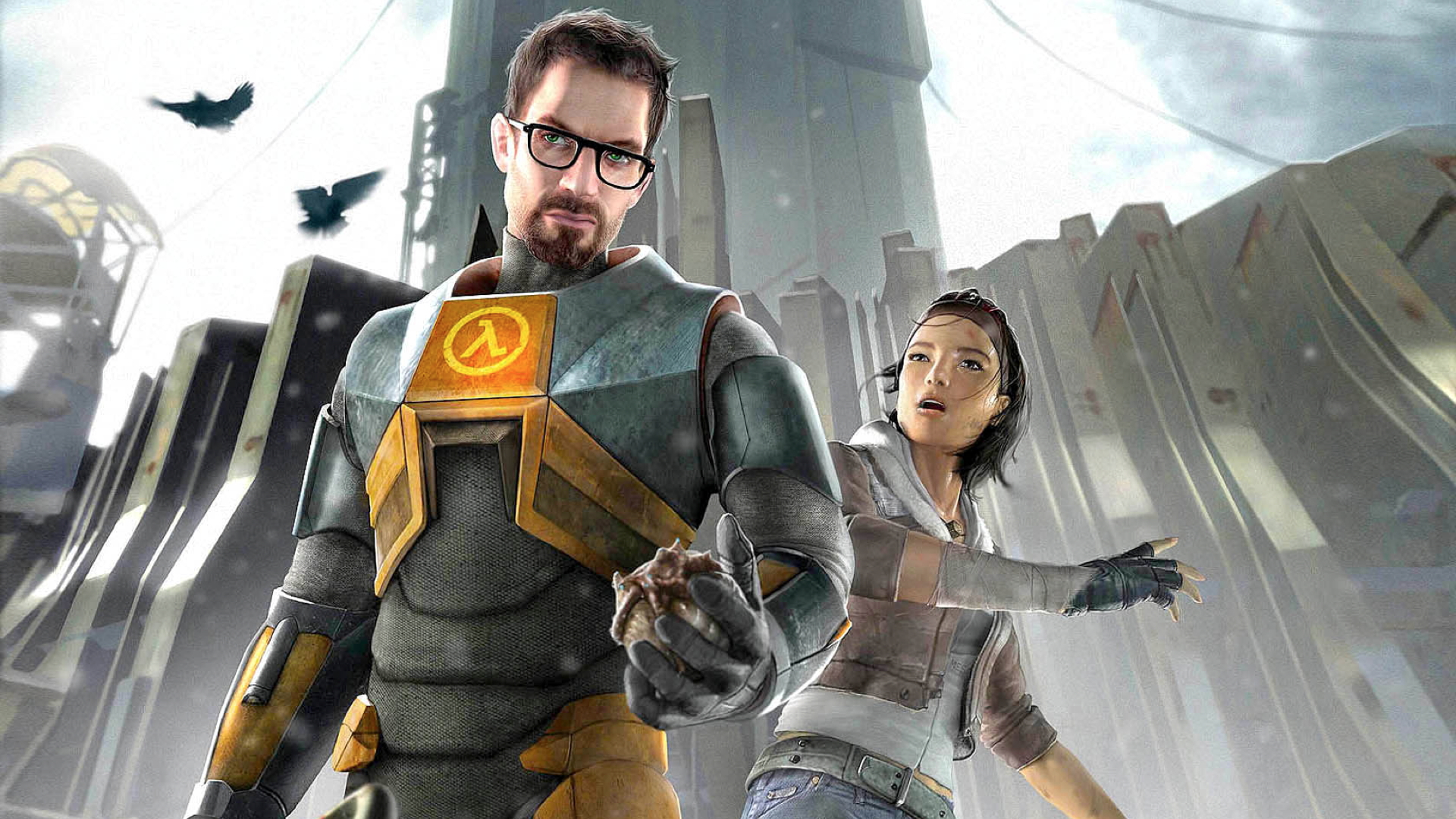
Valve as a company and Gabe Newell himself were on the verge of bankruptcy in the days before the launch of Steam and Half-Life 2, thanks to a lawsuit from publisher Vivendi Games. Disaster was narrowly averted thanks to the fact that Valve just happened to have access to a summer intern who could translate Korean.
Back in 2004, Valve had already launched a handful of the best FPS games ever made, including Half-Life and Counter-Strike, which had both been published by Sierra Entertainment, a subsidiary of Vivendi Games. While Valve intended to self-publish Half-Life 2 on the then-new Steam platform, Vivendi had retail publishing rights to the game. Ahead of Half-Life 2's release, Vivendi was distributing copies of Valve's games to cyber cafes in Asia - something which, Valve argued, Vivendi did not have the right to do.
The ensuing legal battle lasted through 2005, when the two companies settled with what sure seemed like favorable terms for Valve: Vivendi would give up retail distribution rights and transfer all those cyber cafe licenses to Valve. This has all long been a matter of public record, but Valve's new 20th anniversary documentary on the making of Half-Life 2 reveals just how dire the situation was at the time and just how lucky the company got in managing to force that settlement.
Valve attorney Karl Quackenbush explains that Vivendi initially hired a small law firm to defend the publisher against Valve's lawsuit. "There was some initial skirmishing about discovery, there were some disputes and motions that had to be decided by the judge, and those went all Valve's way," Quackenbush says. "And then suddenly the law firm disappeared. They hired a big scary law firm from San Francisco. They thought, 'Okay, Valve's had some success in this case, and so we need to change their mindset from "We think we're gonna be successful" to "We're gonna be destroyed."' The next thing we knew, here comes this big stack of counterclaims, everything from canceling the 2001 agreement to obtaining ownership of all the Half-Life IP to keeping us from doing Steam, you name it."
Vivendi's countersuit named not just Valve itself, but COO Scott Lynch and president Gabe Newell - along with both their spouses - personally as defendants in the case. Lynch characterized Vivendi's sentiment as "Well, we're gonna put Valve out of business and then we're gonna put Valve out of business and then we're gonna bankrupt the two of you."
"It's not a legal strategy, it's basically trying to intimidate you," Newell says. "In other words, they're saying, 'Not only are we going to take all this money from the company, but we're gonna take money from you personally as well.'" With legal fees piling up and Half-Life 2 deep in development, Newell adds that "the company was pretty close to going bankrupt. I was pretty close to going personally bankrupt. We went all in. It's like, there was no money left."
As part of the legal process of discovery, Valve asked for information about Vivendi's operations in Korea, where much of the disputed distribution to cyber cafes was happening. Vivendi responded by dumping giant piles of documents in Valve's lap - all in Korean.
"One of the things they were doing is just dumping huge amounts of discovery on it to force us to go and just have somebody go and look through it," Newell explains. "It's like, 'Oh, look, they ordered sandwiches again,' right? It has nothing to do with the lawsuit, it's just an attempt to overwhelm us with tens of millions of pages of documents on the assumption that there's nothing in it that will be particularly problematic for their case, that we'll eventually just either spend a bunch of money, which plays into their hands, or we'll just eventually give up because it's finding a needle in the haystack. And then we found the needle in the haystack, and that changed things quite dramatically."
That needle was discovered by a summer intern who's only identified as "Andrew" in the documentary. Andrew was a native Korean speaker, so he was put to work looking through all these documents in order to find something useful. As Quackenbush explains, "He said, 'Well, there's these other emails between these vice presidents, where one says something like, "Hey, we destroyed those Valve documents like you asked."' And I said, 'Are you sure it says that?' And he said, 'Yeah, that's what it says.'"
Obviously, destroying evidence is a bit of a no-no in the legal world. Vivendi disputed Andrew's mistranslation, but he was both a native Korean speaker and had a major in Korean language studies at UCLA. As Newell recalls, following the revelation of this email, the judge essentially concluded that "All matters of fact are now according to Valve. You don't get to contest any of those. Now we're just discussing how much you're gonna have to pay and what the damages are." And thus, Valve survived to change PC gaming forever.







